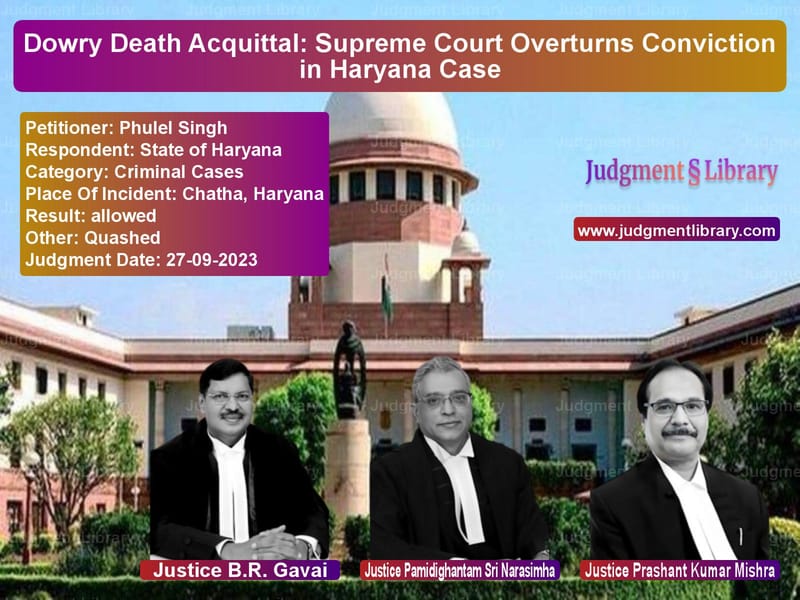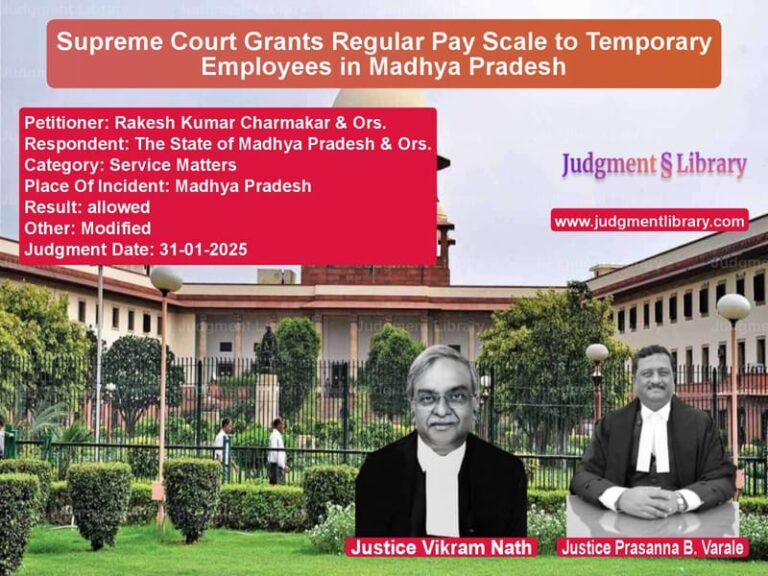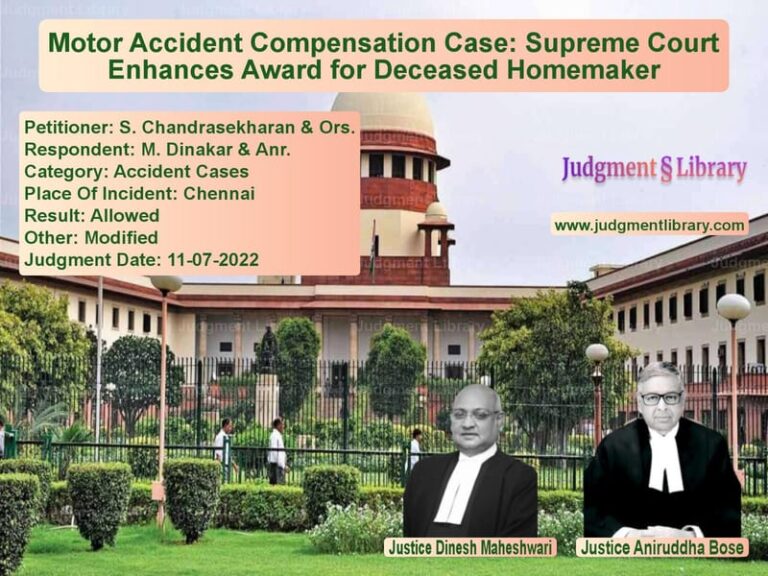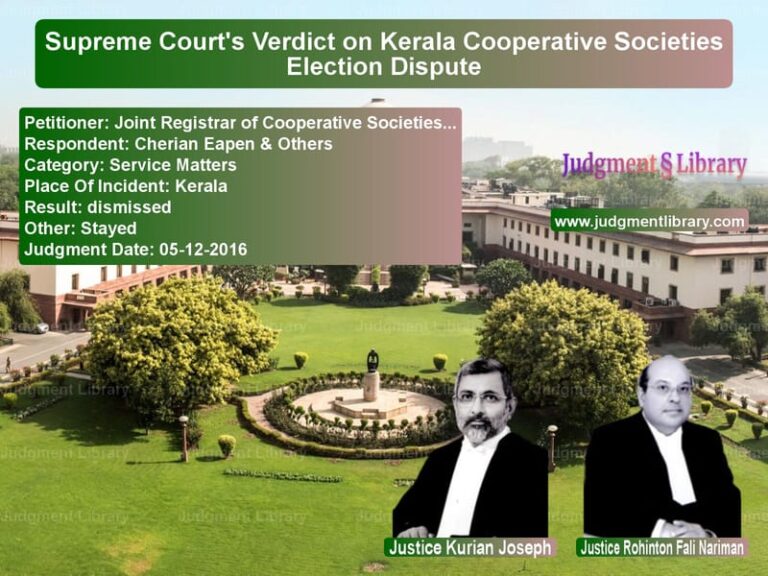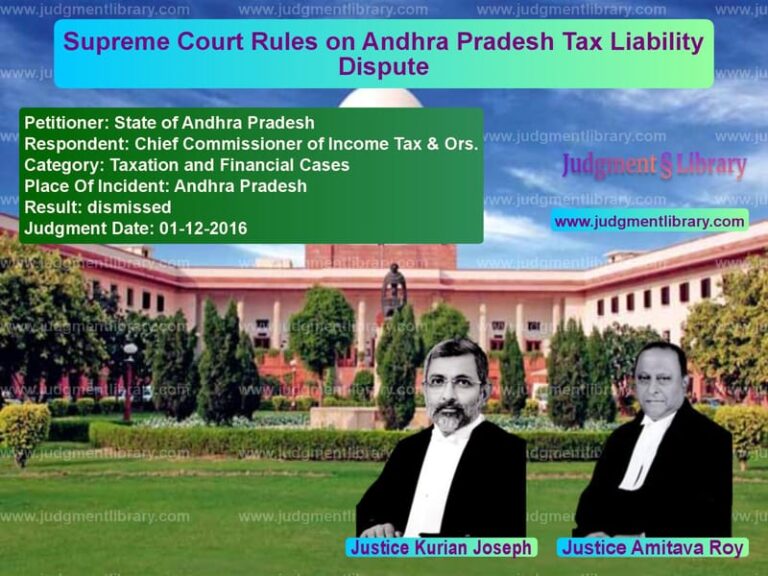Dowry Death Acquittal: Supreme Court Overturns Conviction in Haryana Case
The Supreme Court of India recently delivered a significant judgment in the case of Phulel Singh vs. State of Haryana, dealing with allegations of dowry harassment and the tragic death of Kiran Kaur, the wife of the accused. This case, which had resulted in a conviction under Section 304-B of the Indian Penal Code (IPC), was reversed by the Supreme Court on the grounds of unreliable evidence, inconsistencies in witness testimonies, and a questionable dying declaration.
The Supreme Court ruled that the prosecution failed to establish beyond reasonable doubt that the deceased was subjected to cruelty for dowry or that the accused had a direct role in her death. Consequently, the Court acquitted the accused, emphasizing that mere suspicion or allegations without solid evidence cannot lead to conviction.
Background of the Case
The case revolves around the tragic death of Kiran Kaur, who suffered severe burn injuries on November 5, 1991, at her matrimonial home in Chatha, Haryana. She was admitted to Daya Nand Medical College and Hospital, Ludhiana, where she succumbed to her injuries on November 18, 1991. The prosecution alleged that she was harassed for dowry and was set ablaze by her husband, Phulel Singh, along with his parents.
The trial court convicted the accused under Section 304-B IPC (dowry death), sentencing him to seven years of rigorous imprisonment. The High Court upheld the conviction but acquitted the father-in-law, Jora Singh, citing a lack of direct evidence against him. The matter then reached the Supreme Court.
Key Legal Issues Considered
- Whether the dying declaration of the deceased was reliable and free from external influence.
- Whether there was credible evidence to establish that the deceased was subjected to cruelty for dowry.
- Whether the conviction under Section 304-B IPC was justified based on the available evidence.
- Whether the High Court’s decision to acquit one accused while upholding another’s conviction was legally sound.
Petitioner’s Arguments (Phulel Singh)
The appellant, Phulel Singh, represented by senior counsel, contended that:
- The dying declaration recorded by the Executive Magistrate was unreliable and possibly influenced by relatives of the deceased.
- The first statement made by the deceased to the hospital doctor indicated that she had set herself on fire, contradicting later allegations against the accused.
- The trial court and High Court erred in convicting him without sufficient evidence of dowry harassment.
- There were serious procedural lapses in the recording of the dying declaration, making it legally invalid.
Respondent’s Arguments (State of Haryana)
The prosecution argued that:
- The dying declaration was recorded in the presence of a magistrate and was a crucial piece of evidence proving the accused’s guilt.
- Witness testimonies, including those of the deceased’s father and brother, established a pattern of dowry harassment.
- The conviction under Section 304-B IPC was justified as the death occurred within seven years of marriage under suspicious circumstances.
- The evidence presented was sufficient to sustain the conviction, despite minor inconsistencies.
Supreme Court’s Analysis
The Supreme Court closely examined the evidence and found multiple inconsistencies:
- Unreliable Dying Declaration: The Court noted that the dying declaration was recorded three days after the incident, under questionable circumstances, and possibly influenced by relatives.
- Contradictory Statements: The deceased’s first statement to the doctor at the hospital stated that she had set herself on fire, contradicting later claims that her husband did it.
- Failure to Establish Dowry Harassment: The Court found that the prosecution failed to prove beyond reasonable doubt that the accused had harassed the deceased for dowry.
- Selective Acquittal by High Court: The Court questioned how the High Court acquitted the father-in-law while convicting the husband based on the same evidence.
The judgment observed:
“There is a grave doubt as to whether the dying declaration recorded was a voluntary one or tutored at the instance of the deceased’s relatives.”
Regarding the dowry harassment allegations, the Court stated:
“Except for vague allegations, there is nothing in the evidence to support the prosecution’s case of dowry-related harassment.”
Final Judgment
The Supreme Court set aside the High Court’s judgment and acquitted the accused, ruling that:
- The prosecution failed to prove the charges beyond a reasonable doubt.
- The dying declaration was unreliable and could not be the sole basis for conviction.
- The accused’s conviction under Section 304-B IPC was legally unsustainable.
- The accused was to be released immediately if not required in any other case.
The Court ordered:
“The judgment and order of conviction as recorded by the trial court and affirmed by the High Court are quashed and set aside. The appellant is acquitted of all charges, and his bail bonds shall stand discharged.”
Implications of the Judgment
- Reinforces the principle that convictions cannot be based on unreliable or inconsistent evidence.
- Clarifies the legal requirements for proving dowry harassment under Section 304-B IPC.
- Emphasizes the need for careful scrutiny of dying declarations in criminal cases.
- Prevents the misuse of dowry laws by ensuring only well-substantiated cases lead to conviction.
Conclusion
The Supreme Court’s ruling in this case is a landmark judgment in ensuring fairness in criminal trials related to dowry deaths. It underscores the necessity of solid evidence in cases of alleged dowry harassment and protects individuals from wrongful conviction based on weak or manipulated testimonies. This judgment serves as a precedent for future cases where allegations of dowry-related offenses must be examined with strict judicial scrutiny.
Petitioner Name: Phulel Singh.Respondent Name: State of Haryana.Judgment By: Justice B.R. Gavai, Justice Pamidighantam Sri Narasimha, Justice Prashant Kumar Mishra.Place Of Incident: Chatha, Haryana.Judgment Date: 27-09-2023.
Don’t miss out on the full details! Download the complete judgment in PDF format below and gain valuable insights instantly!
Download Judgment: phulel-singh-vs-state-of-haryana-supreme-court-of-india-judgment-dated-27-09-2023.pdf
Directly Download Judgment: Directly download this Judgment
See all petitions in Murder Cases
See all petitions in Dowry Cases
See all petitions in Judgment by B R Gavai
See all petitions in Judgment by P.S. Narasimha
See all petitions in Judgment by Prashant Kumar Mishra
See all petitions in allowed
See all petitions in Quashed
See all petitions in supreme court of India judgments September 2023
See all petitions in 2023 judgments
See all posts in Criminal Cases Category
See all allowed petitions in Criminal Cases Category
See all Dismissed petitions in Criminal Cases Category
See all partially allowed petitions in Criminal Cases Category

